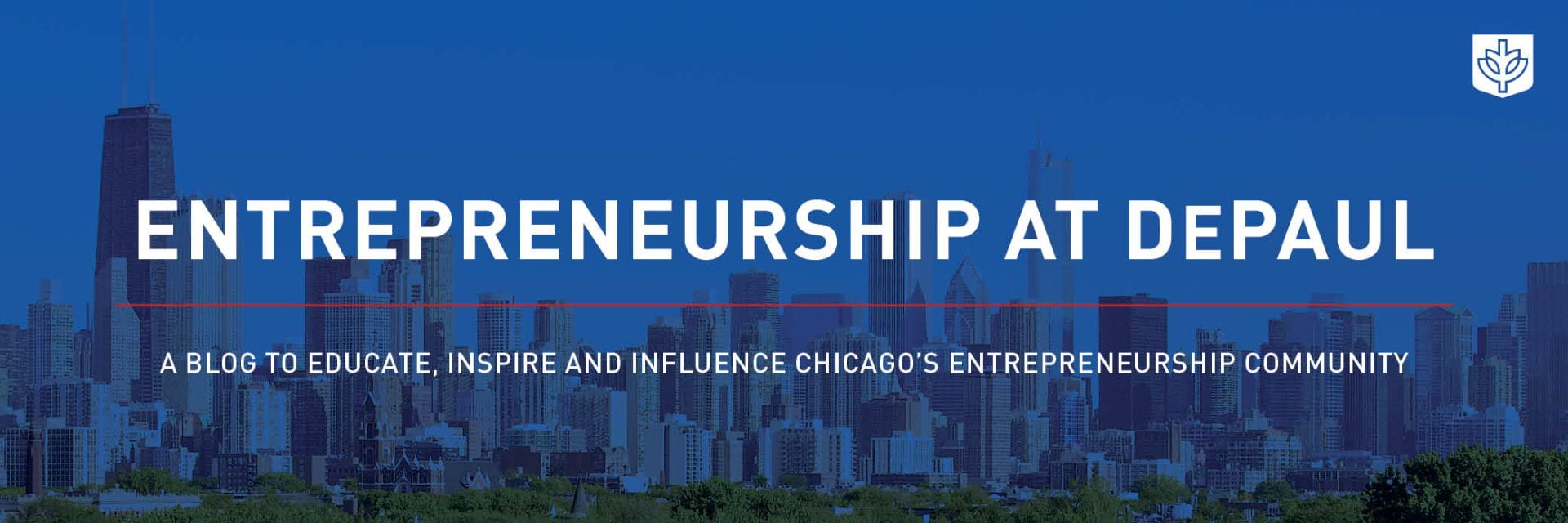Given today’s global health crisis, climate change and societal inequalities, it’s easy to understand why sustainable entrepreneurship has become so important. While consumers are increasingly demanding companies to steer their actions into a more sustainable direction, future entrepreneurs should expand their focus on the well-being of future generations.
The Coleman Entrepreneurship Center at DePaul recently organized the Hale Sustainability Conference in April, bringing together students and entrepreneurs passionate about sustainability while offering networking and career opportunities for aspiring professionals. The two-day conference included speeches from current and future sustainability entrepreneurs, student organizations and a career fair that offered internship opportunities and career workshops in the sustainability industry. The first day of the conference featured keynote speakers Dane Christianson and Stephanie Katsaros as well as three student pitches, which provided inspiration on the many ways a sustainable business idea may present itself to the founder. Below is more information about the speakers’ backgrounds and how they got their start in sustainability.

Sustainable Waste Solutions for Chicago Residents
Dane Christianson, founder and CEO of Block Bins LLC, has always been passionate about sustainability. When Christianson returned to Chicago after living and working in China for his previous employer, he soon realized that despite the demand for recycling needs, Chicago did not offer a means for consumers to sort their waste. To pursue the idea of implementing an accessible city-wide recycling system, Christianson reached out to local waste management companies to collaborate, but the companies were not interested. He decided to take the matter into his own hands and created Block Bins, a solution for Chicago residents to reduce their carbon footprint by recycling their compostable waste. To access the recycling system, customers subscribe to one of the many bins located in the Chicagoland area, from which the Block Bin team collects the waste on a regular basis. After a successful start, Block Bins is now planning to expand and launch a service for plastics.

Global Impact
In 2009, Stephanie Katsaros created Bright Beat, a project management and sustainability consultancy that supports businesses, organizations, cities and events with creating a sustainable strategy and aligning with their social values to find a balance between people, planet and profit. Katsaros spent years working, consulting and volunteering in 28 countries around the world. During her years abroad, she developed a deep appreciation for global cultures that she encountered, and was inspired to use her experience to make a positive impact when she returned to the U.S.

Transforming the Future of Technology
DePaul alumna Gema Tinoco (BA ’22) also pitched her business Better Tech Network, a global collective she co-founded with five young professionals. Better Tech Network provides a platform to discuss and take action toward a positive tech future. Their mission is to encourage people, especially the younger generations, to rethink technology through awareness, empowerment and advocacy. During her presentation, Tinoco described witnessing her peers’ as well as her younger siblings’ addiction to social media and technology in general.
Creating Vertical Gardens
For the student pitch portion of the conference, DePaul alumni Harmoni Jordan (MA ’21) and Zach Silver (MBA ’21) introduced Chi Seeds, a vertical farming concept they developed together with their peer Sarah Sleevi. They explained that vertical gardening can have a positive impact on challenges that emerge from rising consumer prices. Every square foot can be optimized for use, providing superior performance compared to traditional gardening concepts,  they said. The idea of Chi Seeds leads back to when Jordan, a U.S. Air Force veteran, returned from her secondment and realized how expensive food was and how much it affected her life in general. Chi Seeds is aiming to do good by offering affordable food for everyone while supporting returning veterans by employing them.
they said. The idea of Chi Seeds leads back to when Jordan, a U.S. Air Force veteran, returned from her secondment and realized how expensive food was and how much it affected her life in general. Chi Seeds is aiming to do good by offering affordable food for everyone while supporting returning veterans by employing them.
Modernizing Recycling Through Tangible Returns
Asia Harrington pitched her business idea of a mobile application that provides a convenient way for consumers to become more sustainable. According to science, consumers are more likely to recycle when they know that their waste will be transformed into new products. With RecycleU, the customer can subscribe to a recycling program and recycle their waste, such as water bottles and hoodies, which will then be picked up and transformed into tangible items. Harrington came up with the idea during her time at DePaul, as she realized that with the knowledge she had gathered, she had could start her own sustainable business.
Innovation in Sustainability Entrepreneurship
The idea of a sustainable business can develop in as many ways as there are entrepreneurs. Whether the lightbulb first went off in our speakers’ heads when they were in the middle of a far-away jungle, imagining a more sustainable society, or having dinner with their younger siblings watching them get swallowed by social media, it all comes down to three things: becoming aware of an issue, making an impact to change the current reality, and being passionate about it.

Photo credit: Kathy Hillegonds
Contributor Bio

Ainoriikka Anttonen is a second-year MS student in Business Management at the Kellstadt Graduate School of Business. She is currently working as an entrepreneurship research and program assistant at the Coleman Entrepreneurship Center. After completing her bachelor’s degree in Germany, she moved to Chicago in 2019. Her plan is to pursue a career in management consulting and eventually, start her own business.
